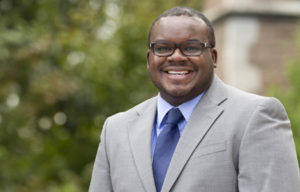The shooting of unarmed Michael Brown in August 2014 by white police officer Darren Wilson has served as a touchpoint for a passionate discussion about race relations and police tactics in America. But how has it impacted residents of the region outside of spotlight of national and international media?
A new study by Darrell Hudson, assistant professor at the Brown School at Washington University in St. Louis, delves into the discrimination felt by African American men in St. Louis, the stress it causes them and the coping methods they use to alleviate that stress.

“I think it’s clear from this study that we need to develop and implement support groups for these men to help relieve some of the stress and anxiety they are dealing with,” Hudson said.
The paper, “Racism?!?. . . Just Look at Our Neighborhoods”: Views on Racial Discrimination
and Coping Among African American Men in Saint Louis,” was published this month in the Journal of Men’s Studies.
Hudson conducted a focus group study of African American men in St. Louis to discuss issues they faced on a daily basis. The focus groups took place in the days preceding and following Brown’s death.
Though numerous stress-related patterns and issues were talked about, racial discrimination and structural racism emerged as pervasive themes among the group.
“I think the events in Ferguson really underscored a need to better understand the challenges and stressors facing African American men,” Hudson said.
“The effects of that stress — particularly race-related stress — are posing serious threats to the mental and physical health of African American men,” Hudson said. “The findings from this study revealed a unique snapshot of what is occurring in the Ferguson region regarding perceptions of discrimination, unequal access to resources and opportunities, along with poor community–police relationships, all of which have coalesced and ignited unrest in the St. Louis region and across the country.”